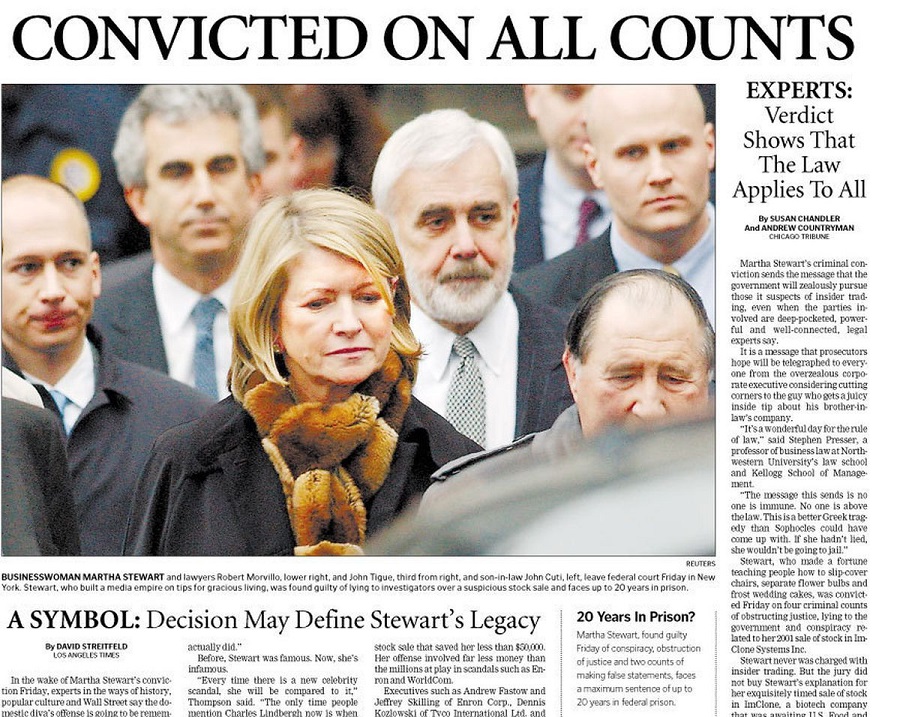Corporate fraudsters: Are UK laws tough enough?

Several articles discussing UK fraud laws have been knocking about over the past week, and several ask a fascinating question: Compared to the USA, is the UK tough enough on corporate wrongdoing? It's safe to say the answer is 'No'.
Now, by no means is the American justice system due any praise because we all know how flawed it is. But for this particular type of wrongdoing, they do seem to shell out hefty punishments.
A good example is that of TV personality Martha Stewart who served five months in jail for her involvement in an 'insider trading' scandal in 2004. Now, let's compare that to what happened to British banker Fred Goodwin.
His megalomania led the Royal Bank of Scotland to the brink of collapse in 2008. Stewart's offences were far less severe than Goodwin's actions, which arguably caused the entire country to fall into a credit crisis.
UK fraud laws
However, in stark contrast to the harsh treatment Stewart received, Goodwin's punishment was to have his knighthood stripped. That's as tough as it got.
The UK doesn't seem to offer any legitimate deterrent or punishment. Goodwin still collects a tidy pension, largely funded by the British taxpayer who were also forced to bail out the bank he led to ruin.
This stems from a lack of desire to investigate these types of misdemeanors. Most of the time, those at the forefront get off scot-free with no more than a director's disqualification, if that. Taking investors' money and trading while insolvent should be punishable crimes in the UK.
High Street GRP
For example, a company director recently steered the High Street GRP (HSG) into administration with the hope of saving the company. They took peoples' money despite knowing that HSG was clearly insolvent.
Another example is Neil Woodford, former fund manager and founding partner of the defunct Woodford Investment Management. Investigations are still plodding along after more than two years while he looks to re-build himself.
Conversely, Elizabeth Holmes faces a long prison sentence for committing similar offences to Forrest and Woodford (albeit on a larger scale). But aside from the number of people and amounts of money involved, how does her misconduct differ from theirs?
The one million pound question is: would harsher measures in the UK deter more people from corporate wrongdoing? Well, it might certainly make them think twice.
